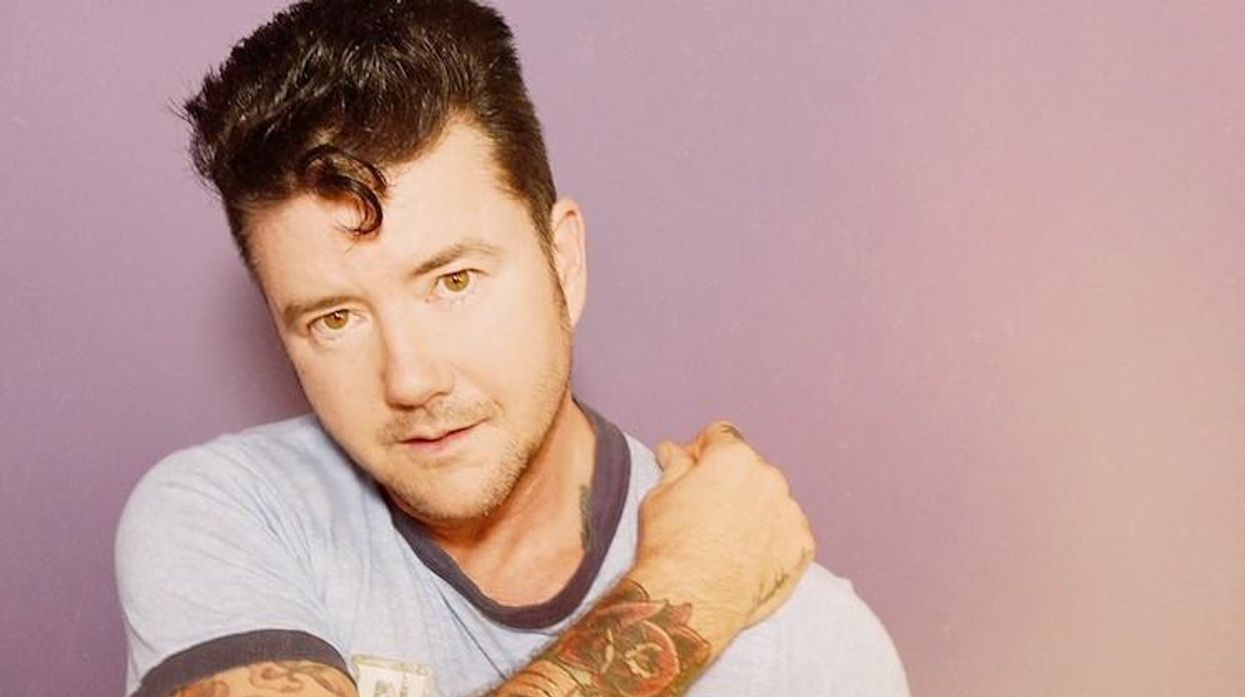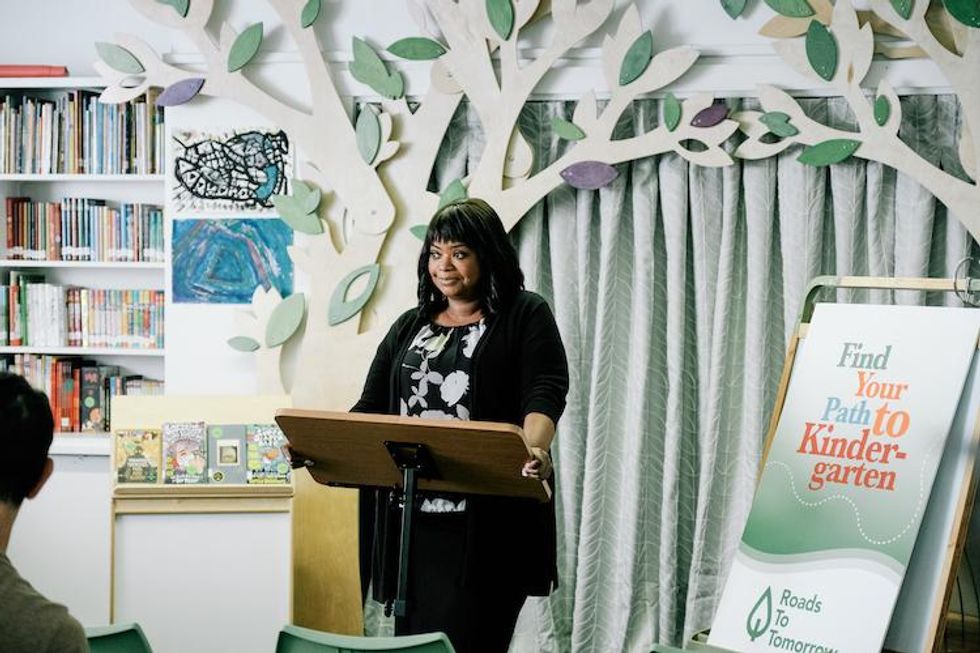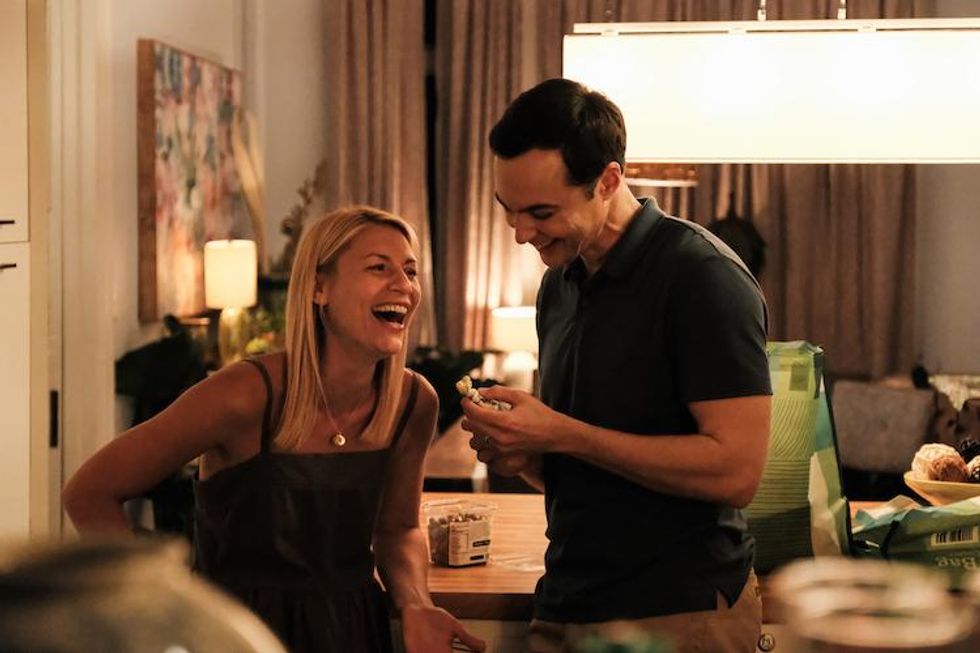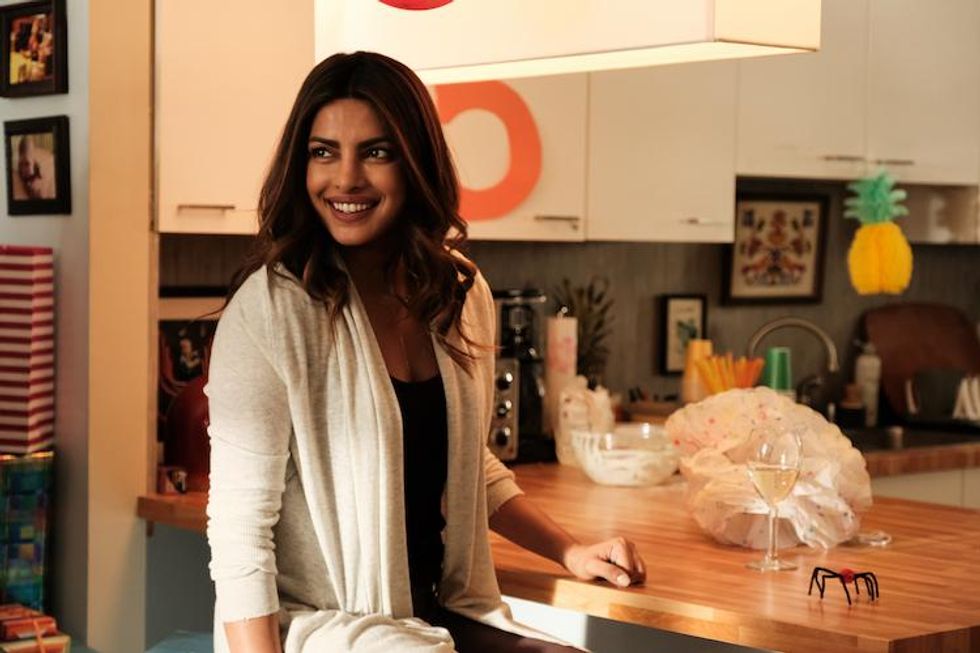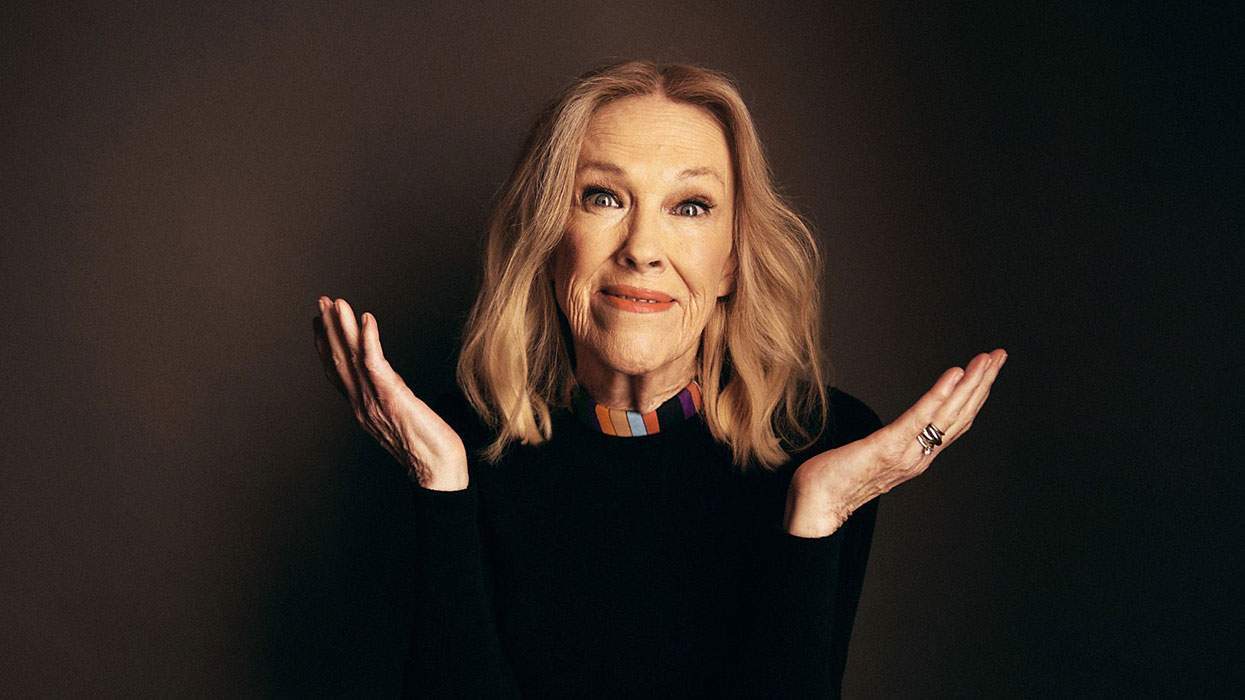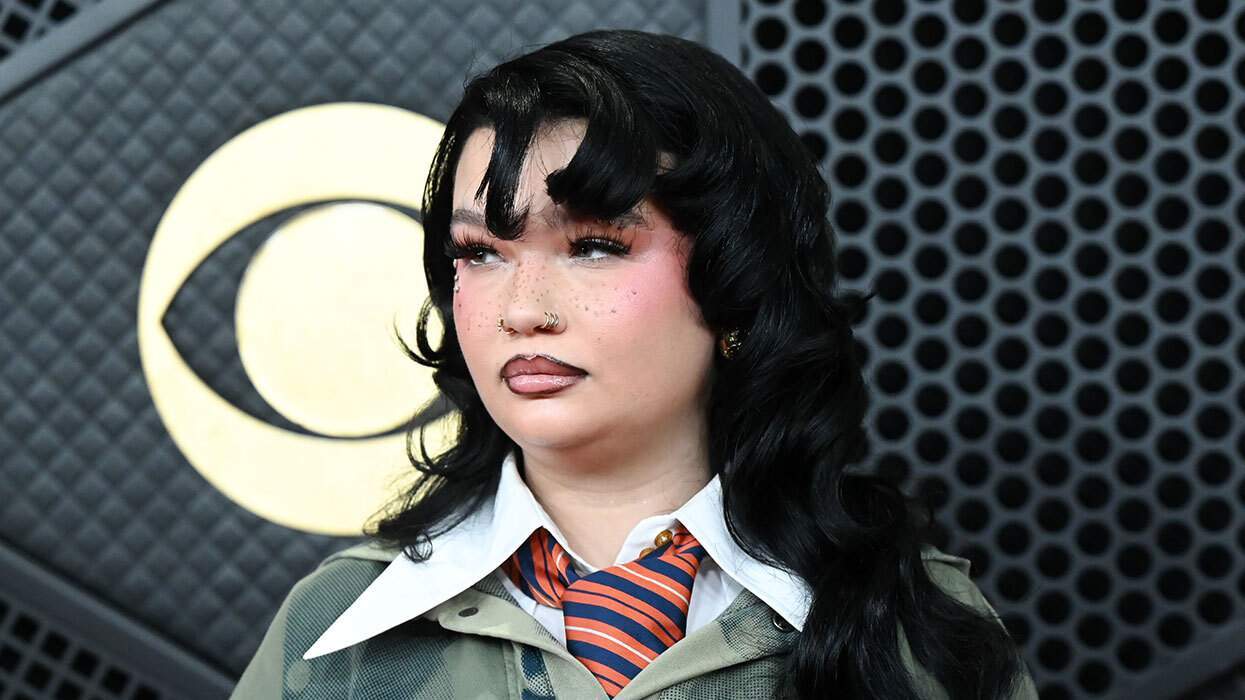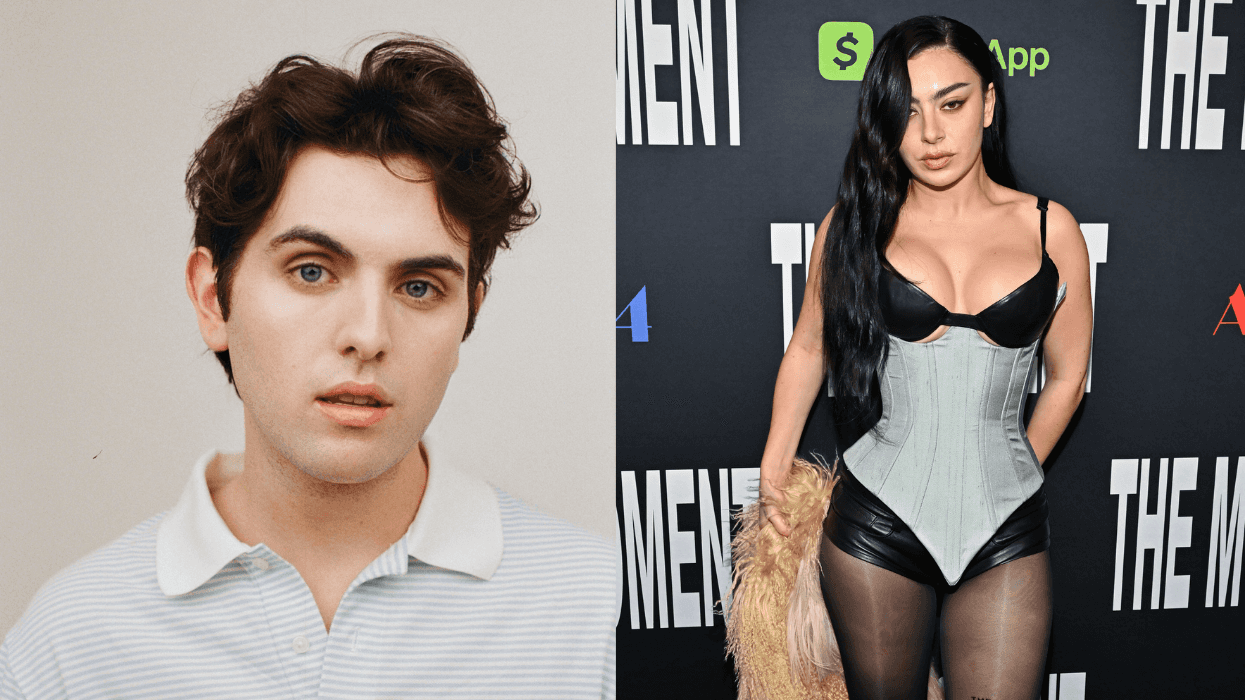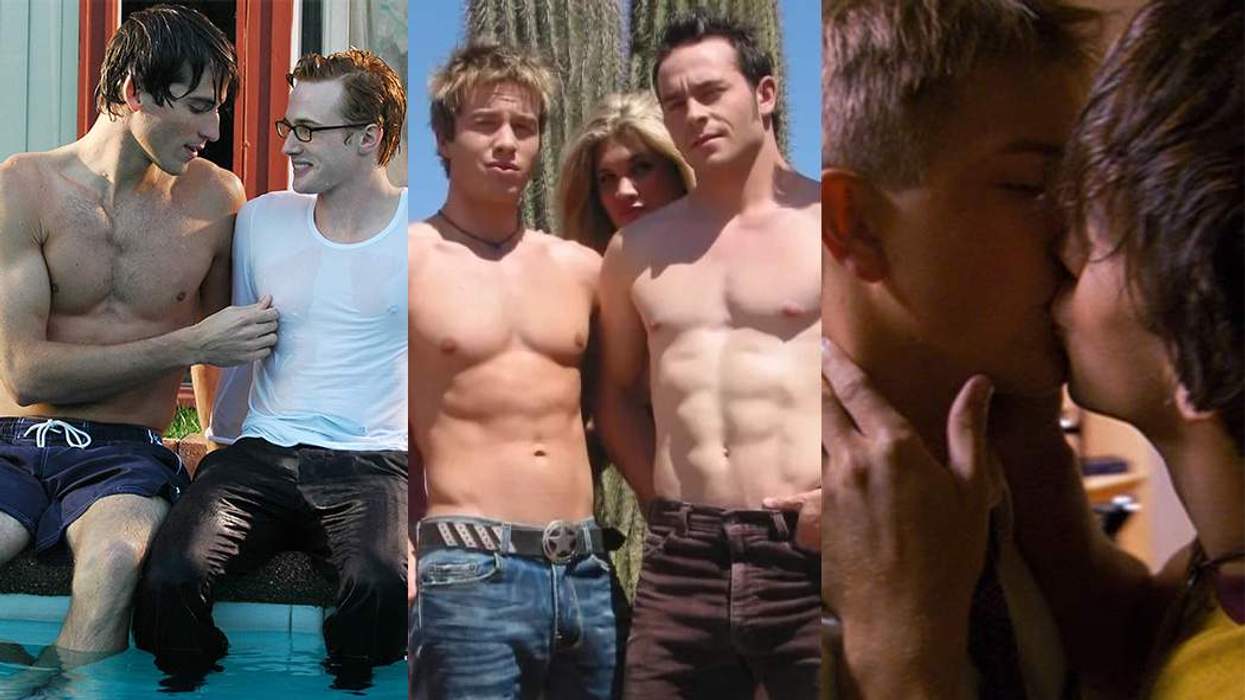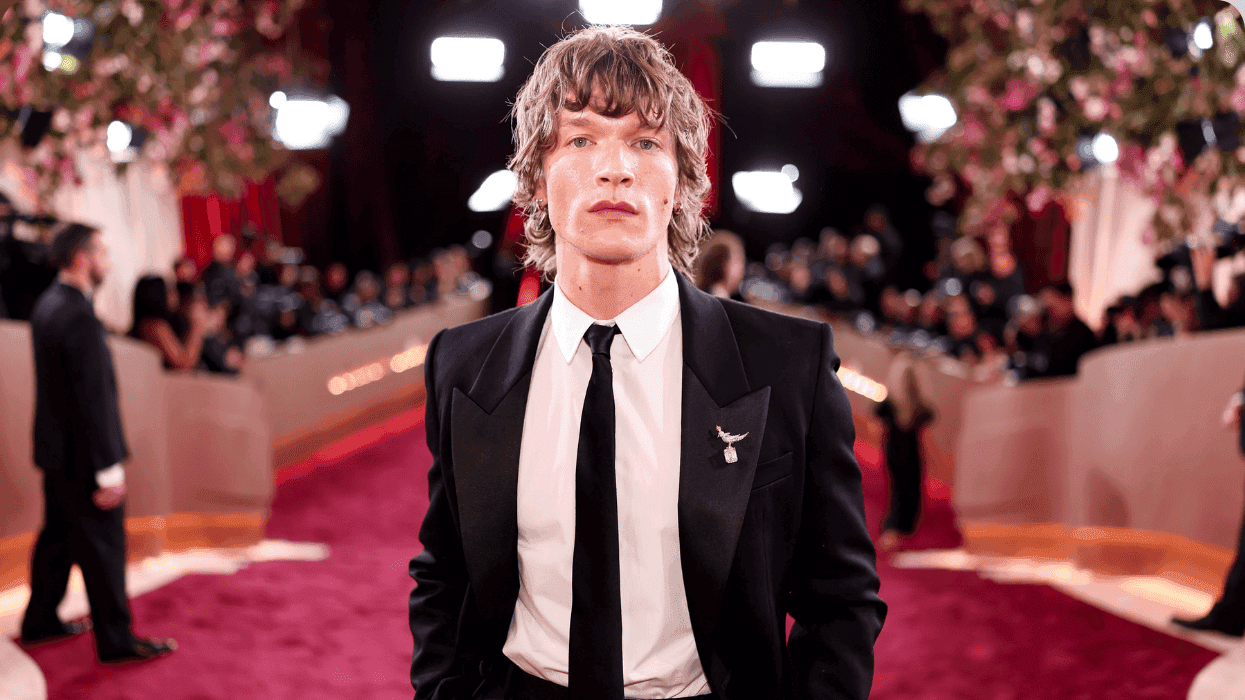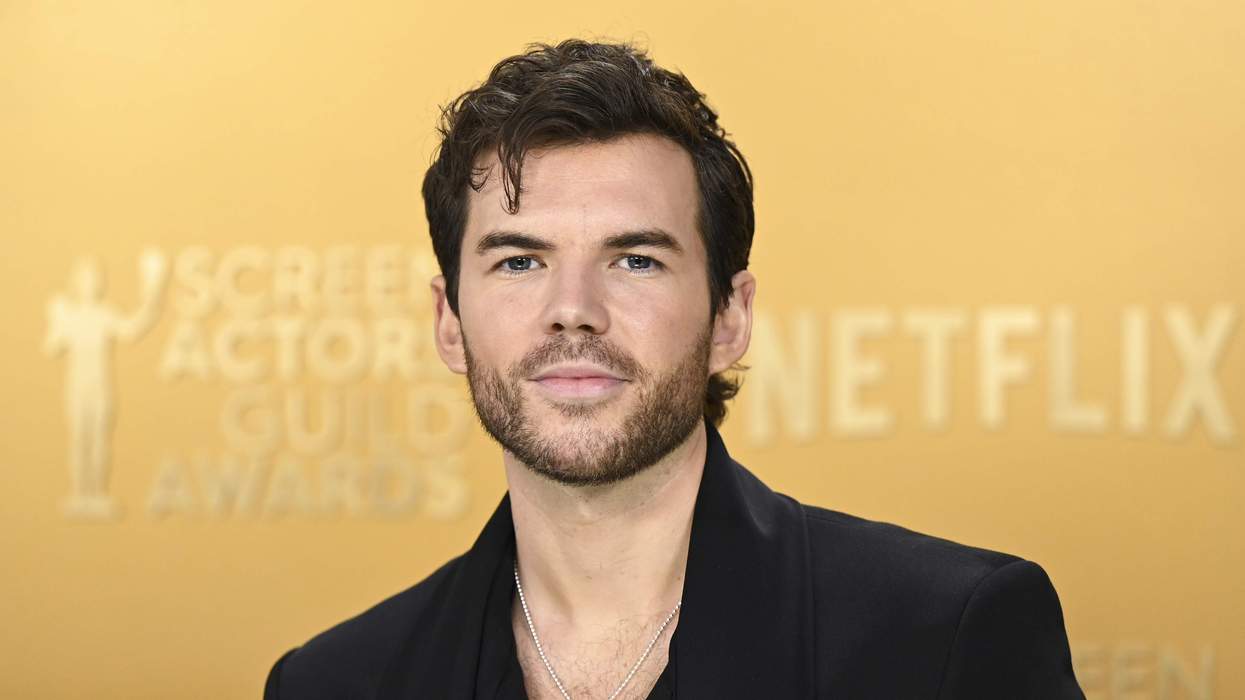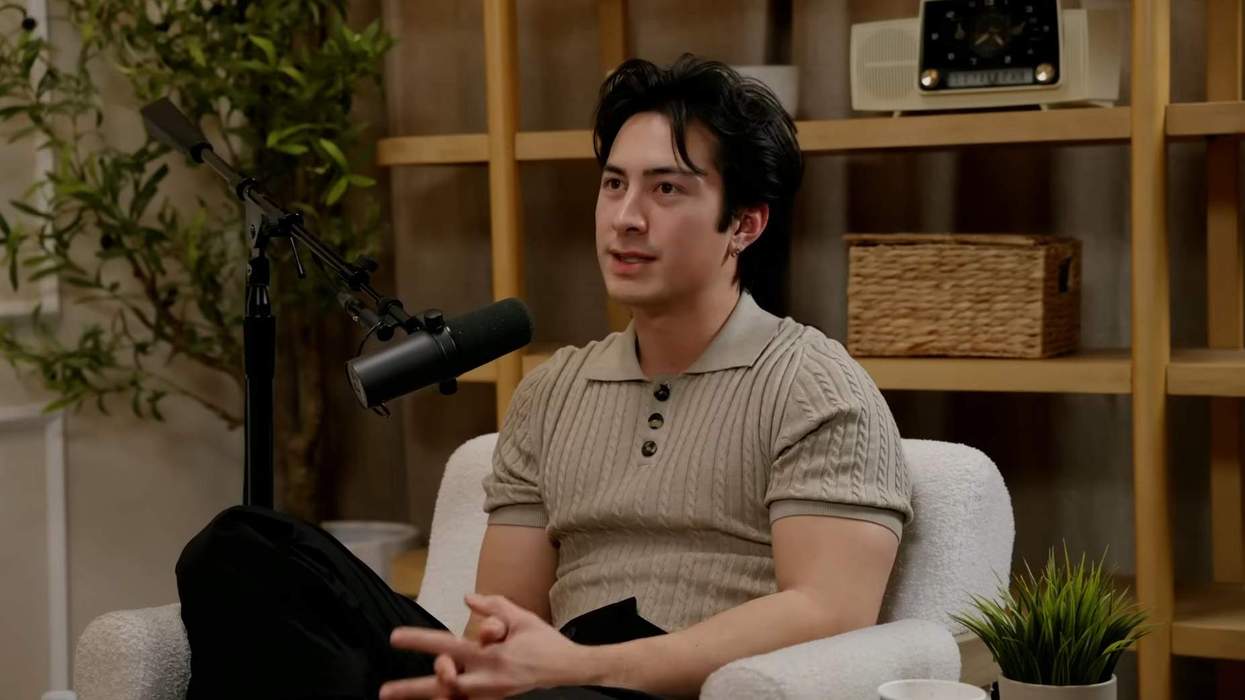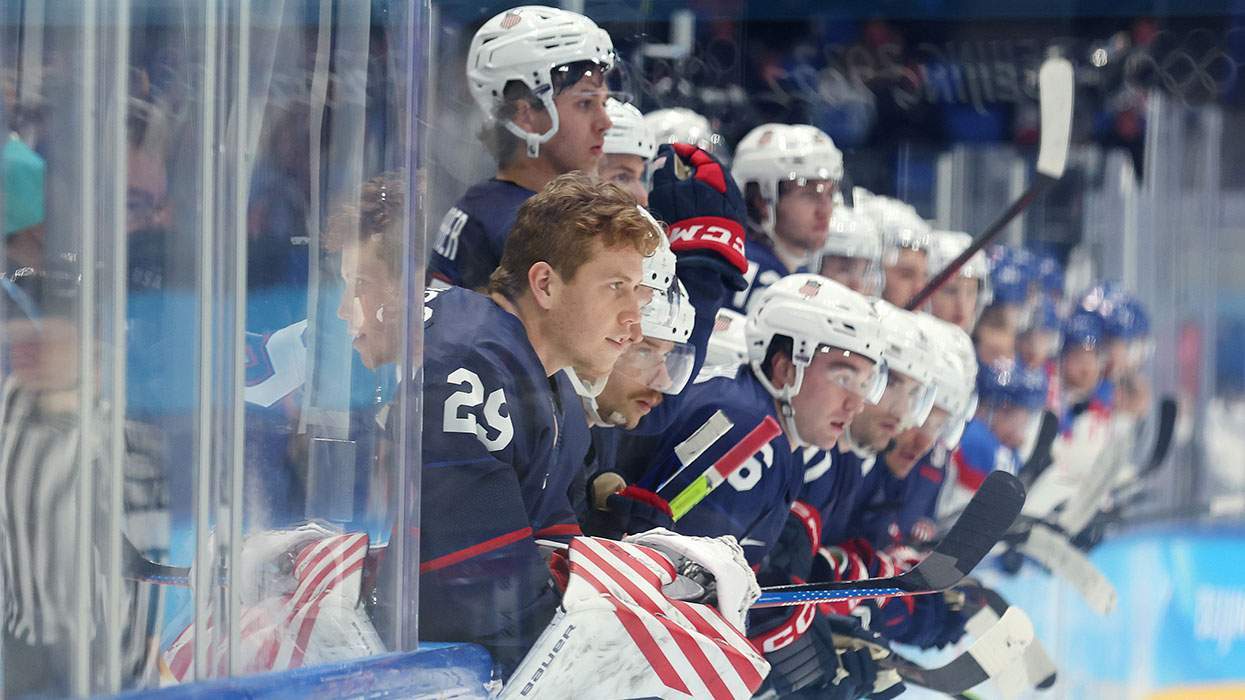In Silas Howard's new film A Kid Like Jake, a well-to-do Brooklyn couple struggle to come to terms with the ambiguous emerging gender identity of their four-year-old son. The film is a moving, emotional exploration of the intricacies of identity, and how each of us can feel like we're failing to live up to standards expected of us by our respective communities.
Howard, a trans filmmaker himself who's worked on shows like Transparent and Pose, has long tackled projects exploring issues of gender and sexuality, but actively avoids "explain-y" narratives--"I think that ultimately distances, and is less interesting," he explains to us.
Related | More Than T Director Silas Howard on Being Looked at Versus Being Seen
A Kid Like Jake is no exception. The 4-year-old titular character in the film isn't in all that many scenes; in the play the film is adapted from he isn't seen at all. Instead, the narrative focuses around Jake's parents, played by Jim Parsons and Claire Danes, who struggle to understand how to treat their son while submitting his applications to various private New York City schools. The cast is rounded out by some serious heavy-hitters, including Octavia Spencer (playing a lesbian schoolteacher), Priyanka Chopra, and Ann Dowd.
We sat down with Howard to hear his thoughts on what the film communicates about the nuances of identity, how it was working with such an A-list cast, and the future of queer cinema.
Check out the trailer for A Kid Like Jake, in theaters Friday, June 1, then read our interview below:
How'd this project fall into your lap--and what were the initial draws and challenges you saw in it?
Silas Howard: The project came to me through That's Wonderful, which is Jim Parsons' production company. They'd had the project for at least a year, and they adapted Daniel Pearle, who wrote the play--it was his thesis play that was picked up and put at Lincoln Center--he did the screenplay adaptation. And they had Claire Danes attached. So they were both attached, and I love the idea of them, and loved the idea of them when I read the script, because of how the relationship breaks down. The attacks they lodge at each other I was excited to explore.
Did the script change much once you signed on?
SH: I definitely had some adjustments I needed, if Daniel were to go for them, just for it to be a better fit. So Daniel and I had an amazing two months of phone calling and texting each other--we didn't even meet face to face until much later. He was so open to my thoughts. He'd been tutoring a lot of young people on the Upper East Side, so he'd been seeing this crazy school competition. He's also queer and grew up loving princesses, so he was thinking about himself and the context of this world he was in, and sort of melding them together. We were changing to more see it from his perspective as a young person, and less about the commentary of the school situation. It had been more focused on the wealthy school competition world, and we were moving it to a more personal lens.
I read that in the initial draft Jake doesn't even appear until the end of the film.
SH: Yeah, so in the play Jake isn't seen at all. He's an unseen character. Which in a play, that's a strategy that's employed. But in a film, for myself as a trans director who has lived as a gender non-conforming person most of my life before transitioning, it was counter intuitive at first to not show this gender expansive kid. But when I read through what it was about, it actually became one of the more political decisions I made as a director, to flip the camera around and show the child more. Because at that age, it's all about the ambiguity. Let's not put anyone in a box. Let's smash the box aside. I wanted to leave that open, and let the audience process Jake by watching. We see Jake in the beginning quite a bit, and then we lose Jake as the parents do.
Photo by Jon Pack, Courtesy of IFC Films.
If you made the film less about the school world and more about the relationships--I think my favorite scene is between Claire and Jim, when they have that huge fight. Was that not in there at first?
SH: It was in there--we didn't change the script hugely, it was just more that we evolved the mom, and we brought their economic class down. They're middle class, but they're not from extreme wealth. In the play it was more commentary--here they are very well-to-do, but not extremely wealthy. What I like about it is they're the demographic you'd think should be fine with this. And I actually have friends that wrestle with this, with their kids, and they're queer, and trans. It's easy to say 'Here's the right thing, here's the wrong thing,' but I liked the messiness. That's the road to healing that I'm looking at.
I really loved Claire Danes, who's obviously a super cool, liberal woman, playing the parent who is more resistant. The movie has a line about how hard it is to really see the people you're closest to, and she struggles with that.
SH: Yeah, Octavia Spencer's character, Judy, says that, and it's really a movie about tunnel vision. The mother is so supportive of her child at home, and then at the threshold, when the child is going to now be in society, which is not so protective of people who don't fit in, that becomes her undoing. I really commend Claire for being fearless in playing someone who is struggling. Because people want to be OK with stuff. It's so interesting, because Greg, Jim's character, is standing back and so putting more pressure on her, and the dynamic feels very real. I think there are a lot of couples where gender spectrum is in play, whether it's a straight couple or not.
Photo by Jon Pack, Courtesy of IFC Films.
Do you feel like the film, as a viewer less than as a director, says something definitive about identity?
SH: That's a really good question. I've spent my career working mostly in independent film with very little financing, and a lot of my casting is in the LGBTQ community. It's been a lot of stories where people just happen to be that--I try to avoid explain-y narratives. I think that ultimately distances, and is less interesting. I wanted this not to be a message movie but almost a Rorschach test for people to see what they brought to it, and where they landed, and who they identified with. It's an examination of this family, and then it zooms out, and society starts to come in, and put these pressures and expectations.
Everyone in the movie I think is not quite living up to their ideal roles: male, female, parent. Everyone's struggling on some level. It shows how these societal pressures start to have an effect on our personal relationships. And the way that that pulls us apart. Daniel has this great thing about, 'Society loves to cherish uniqueness, but punishes difference all the time.' It's exploring that. It's really hard to accept children for who they are. I'm interested in that conversation. Not as a left-right issue, but as a human story about relationships.
Was this one of the bigger budget films you've done then?
SH: Yes, it was, although a very independent budget still. Everyone came on for scale in this cast because they wanted to be part of this conversation. We were independent so we got to make the story, and everyone in this cast brings all their platform into this nuanced study. We didn't have trailers. We all hung out on set together. It was a very familial experience, with all the cast and crew.
You've been doing a lot with Transparent and Pose--how do you feel it is for queer filmmakers and actors trying to get into the business? What's you're experience been like?
SH: It's interesting, because TV is breaking in to us. Transparent really opened a lot of doors for me, and these other shows--The Fosters, Step Up--all had really great characters, but we're still just barely getting there. And it can be frustrating. Visibility, you worry about backlash. I'm always ready for something to punish, after having a spotlight put on my community. It's both amazing and kind of painful.
The internet is so quick to burn something to the ground.
SH: Yeah, and... some stories get to light, but we're still trying to catch up. It's such a small percentage. We've all been waiting so long, that you just want more people to have access. More actors. More roles. More chances to tell our specific stories and stories outside of our realm.
Photo by Jon Pack, Courtesy of IFC Films.
How'd you handle this child actor, and made sure they felt comfortable but also got what you needed out of them? Because there are some intense scenes for Jake.
SH: One thing I asked casting was: 'Can we find an actual princess boy?' I wanted the realness of that. And because we're not doing the entire movie on this child actor, we have the luxury of not having to have them be an 'actor,' and carry this film. I watched Leo's interview, and his audition is a little low energy. But then when I watched him talking, he was such a unique person. A special individual, with the best fashion, and his parents are super supportive and have had pushback. So I met with Leo and his parents, and I talked to Leo and asked, 'Is this something you want to do? It can be kind of long, kind of boring.' So we spent some time getting to know them, and got to learn about the parents' struggle, and supporting their kid and gender expansive kids.
There was a line where... we ended up trying some lines that we ended up not needing, and there was a line where Leo was supposed to say: 'Am I a mistake?' And at one point Leo turned to the camera and said, 'I can't be a mistake. That's impossible.' And broke it down, how that doesn't make any sense. I just loved it. I was like, 'You totally got it right there.'
It's cool how it seems like a bunch of people in this cast and crew have different connections to the story in different ways.
SH: It's true. It's about a straight marriage, but still through a very queer lens. We definitely did have a diversity eye for our crew. Anywhere there was an opening for someone we'd been thinking of working with, this was the project where there was support to bring that person in. I think that really contributed to the vibe overall of the cast and crew.


